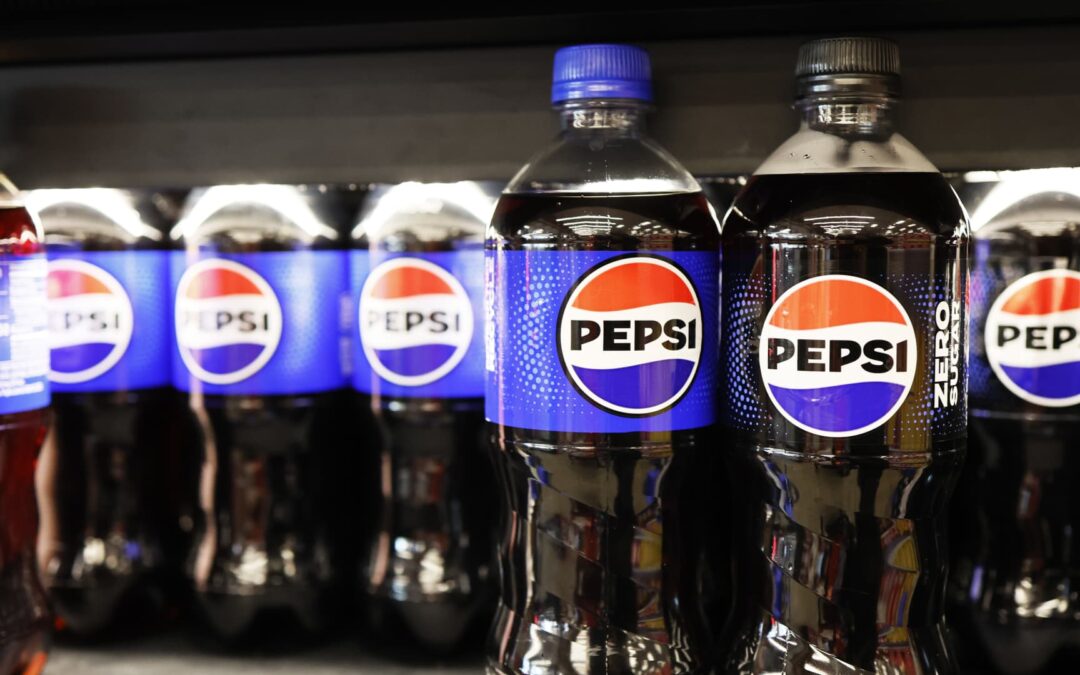Bottles of Pepsi soda are seen on display at a Target store on February 09, 2024 in the Flatbush neighborhood of Brooklyn borough New York City.
Michael M. Santiago | Getty Images
PepsiCo on Tuesday reported quarterly earnings and revenue that beat analysts’ expectations, despite a recall of some Quaker Foods cereal and bars that dented volume.
Shares of the company were down less than 1% in premarket trading.
Here’s what the company reported compared with what Wall Street was expecting, based on a survey of analysts by LSEG:
- Earnings per share: $1.61 adjusted vs. $1.52 expected
- Revenue: $18.25 billion vs. $18.07 billion expected
Pepsi reported first-quarter net income attributable to the company of $2.04 billion, or $1.48 per share, up from $1.93 billion, or $1.40 per share, a year earlier.
Excluding items, Pepsi earned $1.61 per share.
Net sales rose 2.3% to $18.25 billion. The company’s organic revenue, which excludes acquisitions, divestitures and foreign exchange, increased 2.7% in the quarter.
But the company’s volume is still under pressure. Pepsi, along with many of its rivals, has seen its volume fall in response to higher prices for its Gatorade, Fritos and other products in its portfolio.
The company’s food division saw its volume decrease 0.5%, while its beverage segment reported flat volume. The metric strips out pricing and currency changes to reflect demand.
A recall of many Quaker Foods cereals and bars only worsened Pepsi’s volume problem. The company issued the first recall for potential salmonella contamination in December, then widened it in January. The North American Quaker Food division reported that its volume cratered 22% in the quarter. The Quaker Foods recall dented Pepsi’s organic volume by roughly 1%.
Pepsi will officially close a Quaker Oats plant tied to the recalls in June, although production there has already ceased. Pepsi said that the company has resumed limited production of certain products affected by the recalls.
Pepsi’s other North American divisions also reported weaker volume. Volume in its beverage unit fell 5% in the quarter, while Frito-Lay North America reported a 2% decline in its volume.
Outside of the U.S., demand was stronger. Its Asia Pacific, Australia, New Zealand and China region reported 12% volume growth for snacks. Even in Europe, which has also struggled with higher grocery prices, beverage volume increased 7% and snack volume rose 2%.
Pepsi also reiterated its 2024 outlook. For the full year, the company is expecting organic revenue will rise at least 4% and core constant currency earnings per share will climb at least 8%.









